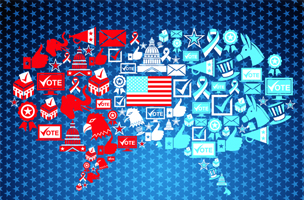North Carolina was given the nickname “Klansville U.S.A” during their rise to fame in the 1960s. The leader of the Klan, Bob Jones, had a strong political agenda in mind when becoming leader of this Klan. He took the group from just having a few members to having tens of thousands, becoming bigger and more powerful than all other southern states combined. Jones had taken on a forceful, militant leadership style and as a result was known as such and was not well-liked nor respected by those outside of the klan. The KKK started as a group to torment freed slaves, but once it was realized how much they enjoyed the reactions of fear from them, that is when the group turned to violence. The group was on the rise during the 20s, only to diminish for decades to return in the 50s when schools began integrating. In the eyes of leader Bob Jones, the Klan had “saved the South twice….and it looks like we’re going to just have to do it again”.
Through the leadership and teachings of Bob Jones, the group collectively believed that integration and equality for African American citizens was an infringement upon rights and resources for White citizens. Because of his economical background, growing up on the poorer side of the middle class, he firmly believed that African Americans were becoming the barrier between success and White citizens. Members were coaxed and manipulated into believing these teachings and that the only way they could have meaning and be triumphant in this world was to join the Klan and follow these beliefs. Thus, the Klan became comprised of middle class, generally less wealthy individuals seeking power in society through the humiliation and repression of African Americans.
The use of fear and manipulation had the followers believing that the motivations and doctrine behind the group was solid and true. All the while, it had African Americans living in fear of retribution or retaliation from their White counterparts. The intense fear of failure and lack of worth is what drove the Klan so powerfully through this part of history, particularly with its members. The fact that fear is what drove these people to believing they needed to be saviors of the South is truly terrifying to think about, especially when you consider just how recent these events actually were. In the grand scheme of things, this is still relevant to history and really was not terribly long ago.
The workings of the Klan itself is what really had me most shocked. I was entirely unaware that this ever was even prevalent in North Carolina, especially to such an extent. The motives, morals and beliefs behind what Bob Jones was demonstrating and fighting for is nothing short of unjust, unethical and unfair. In essence, it is nothing short of disgusting. Though the Klan was eventually deconstructed and brought down from its reign, what it had sought out to do and all the group had accomplished really left me with a strong bitterness and distrust towards my own race at the time. Instead of utilizing time and resources to come together as a collective whole, this group strived to do the exact opposite, overall harming the Civil Rights Movement and African Americans experiencing this oppression over time.
This documentary from PBS was almost inconceivable for me. Since going to school in North Carolina, it has been a very eye-opening, culture shock in a sense for me as I have lived in New Jersey for all of my life. Life here versus life at home is more different than I would have imagined and through this class, I have only come to learn more about the state of North Carolina and what it has been through. In that, I have learned about things, such as Klansville U.S.A., Swann v. Charlotte Mecklenburg and many more history altering events that have occurred here and it has entirely changed my perspective on the North versus the South. This documentary, above all other topics, was extremely astonishing and I am more than glad we have progressed as a nation since that time. I am grateful to not be living in Klansville, U.S.A. and brokenhearted for those that lived it.

